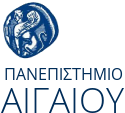The environmental issue used to be faced as something concerning a minority of people who tried to awaken the environmental consciousness of the others and more intensively of the governments. The last decades however, things have changed and the environment has gained the position it deserves, and it has been realized the strong connection between the state of the environment and our quality of life. Furthermore, what was a great success is the fact that everybody realized that the environment could not be addressed as a national problem as it has no borders; the air we breathe, the water we drink and swim into, the forests, etc., affect everybody, not only the local citizens. If there is a major environmental pollution it doesn’t stop where the national borders are, but unfortunately it will move to all the neighbor countries; it is their unique transboundary characteristic.Apparently, humans’ activities can be a major threat for the environment, as they contribute to the pollution of water and air, to the thoughtless exploitation of natural resources, to the destruction of the flora and fauna, and to the holistic change of the climate. No matter how ethical someone may believe he/she is, our everyday habits –hyper-consumption, ignorance of the natural world, disregard for ecological limits- cause major environmental and social issues. However, today the technological improvements and knowledge are sufficient enough to reverse these effects and what has to be strong enough is the political will. The global environmental governance is conducted by several actors. The local, national and international authorities and public institutions form the one part and the non governmental institutions form the other. In the past the only one responsible for setting rules, i.e. for making policy, was the governments and the governmental institutions. However what can be observed nowadays is a massive interest from the private rule setting institutions in order to fill in the gaps the public institutions may have left, or in order to work along with latter so as to achieve better results.This Master thesis aims to contribute a little bit to this question through a structured, focused review of the literature from the fishery’s point of view. In the first part, we highlight the main European Union’s legislation on fishery. In the second part we present the case of the non governmental organizations and their role in the rule setting process. We focus on two case studies; the Marine Aquarium Council and the Aquarium Stewardship Council which represent two parts of the fishery sector; the first one deals with coral reefs and other marine ornamental species, whereas the second one deals with twelve aquaculture species; salmon, shrimp, tilapia, freshwater trout, Pangasius, abalone, mussels, clams, oysters, scallops, cobia and Seriola.Fishery, like agriculture, belongs to the primary production sector. The first species to be consumed by humans as food were marine mollusks and especially clams, mussels and oysters. Initially the fish were consumed as soon as they were harvested. Gradually, the individual fishing gave its position to the collective and organized fishing which became even more massive during the 19th century when fishing got mechanized. All these resulted in the overfishing of the marine life- some species have totally disappeared and others are in danger-, and in the pollution and sometimes even in the destruction of the marine environment. To protect what was left and try to help reproduction, aquaculture was developed along with strict regulation for fishing in open seas.
Το περιβαλλοντικό ζήτημα αντιμετωπίζονταν ως κάτι που αφορά μια μειονότητα ανθρώπων που προσπάθησε να αφυπνίσει την περιβαλλοντική συνείδηση των άλλων και κυρίως των κυβερνήσεων. Τις τελευταίες δεκαετίες όμως τα πράγματα έχουν αλλάξει και το περιβάλλον έχει κερδίσει τη θέση που του αξίζει, η ισχυρή σχέση μεταξύ της κατάστασης του περιβάλλοντος και της ποιότητας της ζωής μας έχει συνειδητοποιηθεί. Επιπλέον, μια μεγάλη επιτυχία ήταν το γεγονός ότι όλοι συνειδητοποίησαν ότι το περιβάλλον δεν θα μπορούσε να αντιμετωπιστεί ως εθνικό πρόβλημα, δεδομένου ότι δεν έχει σύνορα. Τον αέρα που αναπνέουμε, το νερό που πίνουμε και κολυμπάμε, τα δάση, κ.λπ., επηρεάζουν όλους, όχι μόνο την τοπική κοινωνία. Η ρύπανση του περιβάλλοντος δεν σταματά στα εθνικά σύνορα, αλλά δυστυχώς κινείται προς όλες τις γειτονικές χώρες.Προφανώς, οι δραστηριότητες των ανθρώπων μπορούν να αποτελέσουν μια σημαντική απειλή για το περιβάλλον, δεδομένου ότι συμβάλλουν στη ρύπανση των υδάτων και της ατμόσφαιρας, την αλόγιστη εκμετάλλευση των φυσικών πόρων, την καταστροφή της χλωρίδας και της πανίδας, καθώς και στην ολιστική αλλαγή του κλίματος. Ανεξάρτητα από το πόσο ηθικά σωστός κάποιος μπορεί να πιστεύει ότι είναι, οι καθημερινές μας συνήθειες -η υπερ-κατανάλωση, η άγνοια για τον φυσικό κόσμο, η αδιαφορία για την οικολογία- προκαλούν σημαντικά περιβαλλοντικά και κοινωνικά θέματα. Ωστόσο, σήμερα οι τεχνολογικές βελτιώσεις και η γνώση είναι επαρκείς για να αντιστραφούν αυτές οι επιπτώσεις. Πιο σημαντικό είναι οτι πλέον η πολιτική βούληση είναι αρκετά ισχυρή.Η παγκόσμια περιβαλλοντική διακυβέρνηση διεξάγεται από διάφορους παράγοντες. Οι τοπικές, εθνικές και διεθνείς αρχές και δημόσιοι οργανισμοί αποτελούν το ένα μέρος και τα μη κυβερνητικά όργανα την άλλη. Στο παρελθόν ο μόνος υπεύθυνος για τη διαμόρφωση πολιτικής ήταν οι κυβερνήσεις και τα κυβερνητικά όργανα. Ωστόσο, αυτό που μπορεί να παρατηρηθεί σήμερα είναι ένα τεράστιο ενδιαφέρον από τον ιδιωτικό τομέα για τη χάραξη πολιτικής, προκειμένου να καλύψει τα κενά τα οποία μπορεί να έχουν αφήσει οι δημόσιοι φορείς, ή προκειμένου να εργαστούν μαζί με αυτούς, έτσι ώστε να επιτευχθούν καλύτερα αποτελέσματα.Αυτή η μεταπτυχιακή διατριβή έχει ως στόχο να συμβάλει λίγο σε αυτό το ερώτημα μέσα από μία δομημένη ανασκόπηση της βιβλιογραφίας, όσον αφορά στον τομέα της αλιείας. Στο πρώτο μέρος, μελετάται τη νομοθεσία της Ευρωπαϊκής Ένωσης για την αλιεία. Στο δεύτερο μέρος παρουσιάζεται η περίπτωση των μη κυβερνητικών οργανώσεων και ο ρόλος τους στη διαδικασία χάραξης πολιτικής. Εστιάζουμε σε δύο μελέτες περιπτώσεων' το Marine Aquarium Council και το Aquaculture Stewardship Council, που αντιπροσωπεύουν δύο κομμάτια του τομέα της αλιείας. Ο πρώτος ασχολείται με τους κοραλλιογενείς υφάλους και άλλα θαλάσσια είδη, ενώ ο δεύτερος ασχολείται με δώδεκα είδη υδατοκαλλιέργειας.
 University of the Aegena
University of the Aegena

